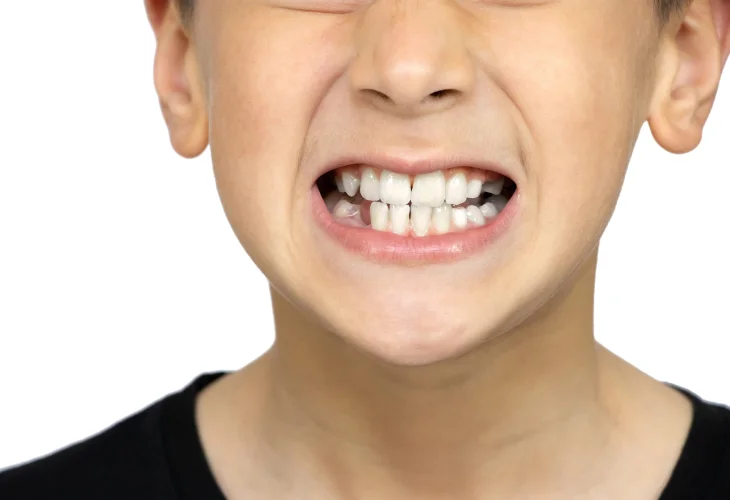Health and Nutrition
Teeth Grinding (Bruxism): Causes, Symptoms, and Effective Treatments
Learn What Triggers Teeth Grinding, How It Affects Your Health, and the Best Ways to Treat and Prevent Long-Term Damage
 (Photo: shutterstock)
(Photo: shutterstock)Teeth grinding, also known as bruxism, is a common condition in which people unconsciously clench or grind their teeth, mainly during sleep, though it can also occur during waking hours. This habit can lead to significant damage to the teeth, jaw, and even impact overall quality of life.
The Two Main Types of Teeth Grinding:
1. Nighttime Bruxism:
This is the more common form, occurring during sleep. It’s often associated with other sleep disorders such as snoring or sleep apnea. Since it happens unconsciously, many people aren’t even aware of it unless someone else hears the grinding or they wake up with jaw pain or headaches. Nighttime bruxism can be especially concerning because it’s harder to control or treat while asleep.
2. Daytime Bruxism:
This takes place when a person is awake, usually triggered by stress, anxiety, or as an unconscious habit. People may clench their jaw or grind their teeth without realizing it, especially in stressful situations. Because it occurs during wakefulness, it’s generally easier to detect and manage.
Common Causes of Teeth Grinding:
Bruxism is considered a multi-factorial condition, meaning it often stems from a combination of causes:
Stress and Anxiety: The most common trigger. Emotional stress can cause people to clench their jaw or grind their teeth without realizing it.
Dental or Jaw Misalignment: Issues with bite alignment can lead to uneven pressure on the teeth and cause grinding.
Medical Conditions or Medications: Certain antidepressants and neurological disorders like Parkinson’s disease can contribute to bruxism.
Unconscious Habits: Fatigue, lack of focus, or repetitive stress may create ingrained jaw-clenching behaviors.
Symptoms and Signs:
Grinding Noises During Sleep: Often reported by a sleeping partner or family member.
Jaw and Head Pain: Prolonged muscle tension can lead to headaches, jaw soreness, and neck pain.
Tooth Damage: Chronic grinding can wear down enamel, cause sensitivity, fractures, or misshaped teeth.
Gum Sensitivity: The pressure can lead to pain or inflammation in the gums.
Treatment Options for Teeth Grinding:
There are several effective ways to manage bruxism, depending on its severity and root causes:
Night Guards: These custom-fitted dental devices are worn during sleep to reduce friction, protect tooth enamel, and prevent further damage.
Relaxation Techniques & Stress Management: Deep breathing, mindfulness, or therapy can help those who grind due to emotional tension.
Jaw Muscle Exercises: Physical therapy techniques help relax jaw muscles and improve function.
Muscle Relaxants or Sedatives: In more serious cases, doctors may prescribe medication to relax the jaw or improve sleep. These should only be used under medical supervision.
Botox Injections: For severe bruxism, Botox can be injected into the jaw muscles to temporarily reduce muscle activity and relieve symptoms. Treatments typically need to be repeated every few months.
Improving Sleep Hygiene: Creating a calm sleep environment, avoiding caffeine before bed, and maintaining regular sleep routines can help reduce nighttime grinding.
Teeth grinding is a common yet often overlooked condition that can affect both physical health and emotional well-being. Though caused by various physical and psychological factors, it is treatable. With the right combination of approaches, bruxism can be significantly reduced or managed. If you suspect you’re grinding your teeth, consult a dentist or jaw specialist to explore tailored solutions that protect your dental health and improve your quality of life.

